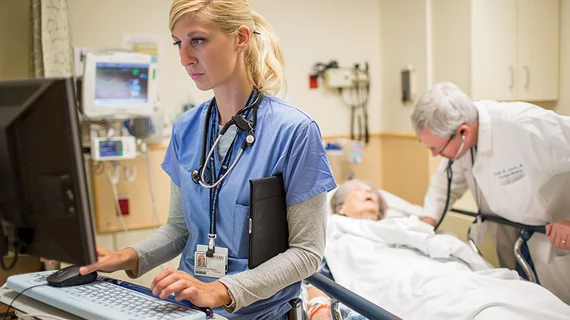More than 90% of healthcare workers have experienced violence
A whopping 92% of healthcare workers say they’ve experienced or been close to violence on the job.
That’s according to a new survey from Perceptyx, which noted the violence came from a patient or a patient’s caregiver in the past month for 9 in 10 survey respondents. Another 3 in 4 respondents have encountered both verbal and physical assaults in the month, and nearly half of workers called for security or another coworker to assist.
The findings align with other recent studies about healthcare workplaces. Nearly 25% of physicians said they have experienced workplace mistreatment in a recent study. The studies are alarming given the current labor market in the healthcare industry. The COVID-19 pandemic has led many to leave the healthcare industry altogether, and more nurses are expected to leave their current roles by the end of the year. The labor squeeze has forced hospitals and health systems to boost wages and incentives, impacting already-strained margins.
Hospital staff tend to experience the most incidents of physical violence than other settings, and physical violence is most prevalent in hospitals and long-term care facilities, the Perceptyx study found. More than half of long-term nurses said they’ve experienced a physical assault in the last month, 15% of which warranted a call for help. That’s compared to 4 in 10 hospital workers who have experienced a physical attack. However, half of those incidents have required intervention.
Ninety-six percent of hospital nurses said they had experienced violence in the last month, and the magnitude of these assaults were higher for this group, as 4 in 5 hospital nurses have had to call for help from a coworker or security because they feel unsafe. However, male and female health workers faced a comparable risk of experiencing a violent incident in the past month, the study found. Women were more likely to need help in these incidents.
“It’s no secret that healthcare workers are burning out from long hours, lack of staff and the emotional stress of the pandemic––and that violence in healthcare settings is on the rise,” said Emily Killham, director of research and insights at Perceptyx. “But this research shows just how widespread the issue is. It’s not limited to just nurses in hospitals––it’s affecting every corner of the profession. And, when you include workers who have witnessed violence as well as those who have experienced attacks, it’s easy to see just how much violence has become a facet of daily work in the healthcare industry.”

